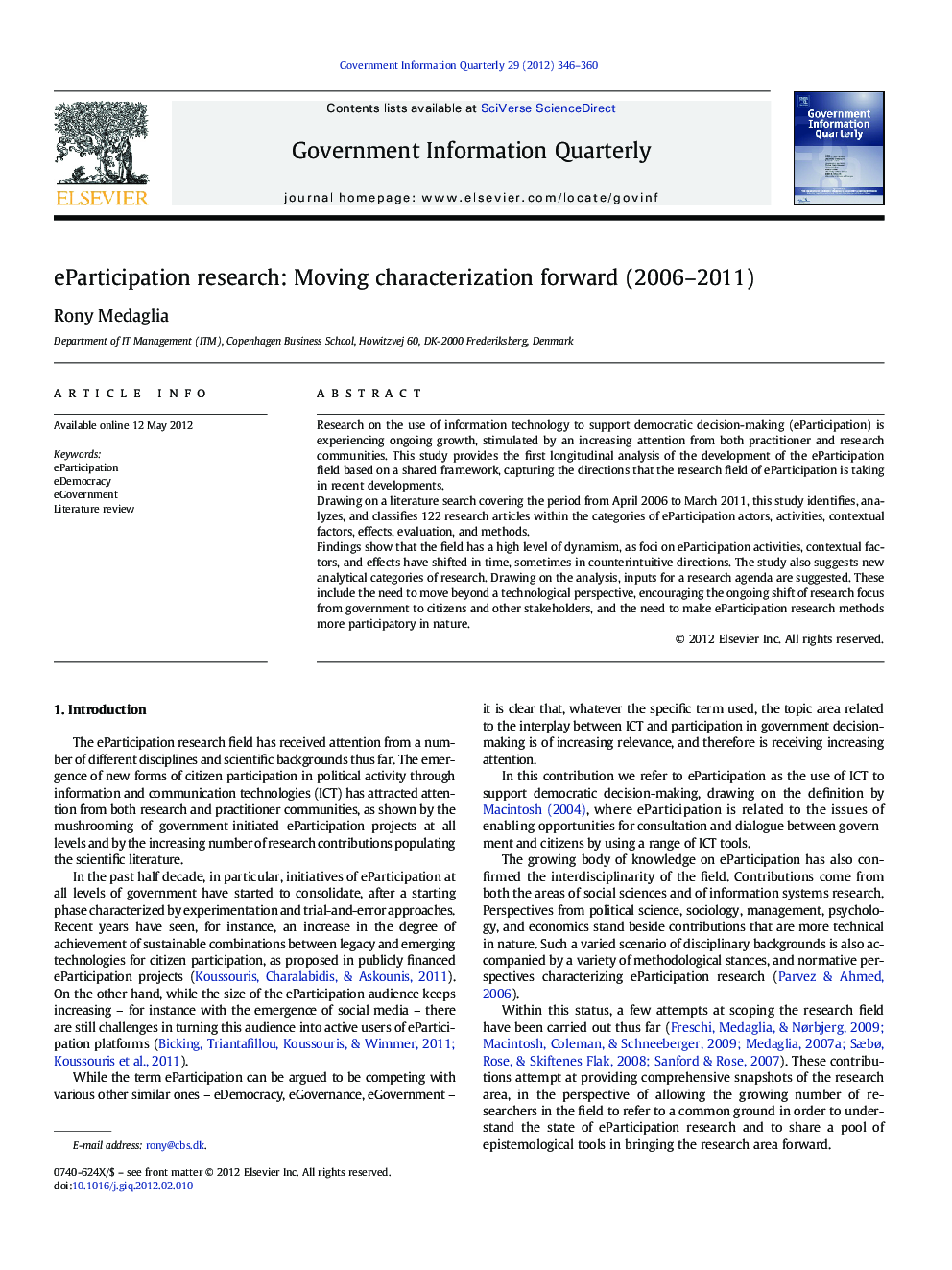| Article ID | Journal | Published Year | Pages | File Type |
|---|---|---|---|---|
| 1024636 | Government Information Quarterly | 2012 | 15 Pages |
Research on the use of information technology to support democratic decision-making (eParticipation) is experiencing ongoing growth, stimulated by an increasing attention from both practitioner and research communities. This study provides the first longitudinal analysis of the development of the eParticipation field based on a shared framework, capturing the directions that the research field of eParticipation is taking in recent developments.Drawing on a literature search covering the period from April 2006 to March 2011, this study identifies, analyzes, and classifies 122 research articles within the categories of eParticipation actors, activities, contextual factors, effects, evaluation, and methods.Findings show that the field has a high level of dynamism, as foci on eParticipation activities, contextual factors, and effects have shifted in time, sometimes in counterintuitive directions. The study also suggests new analytical categories of research. Drawing on the analysis, inputs for a research agenda are suggested. These include the need to move beyond a technological perspective, encouraging the ongoing shift of research focus from government to citizens and other stakeholders, and the need to make eParticipation research methods more participatory in nature.
► I analyze 122 research articles on eParticipation published in the period 2006–2011. ► I provide a longitudinal view of the shifts in eParticipation research foci. ► I highlight evidence-based inputs for a revised eParticipation research agenda.
